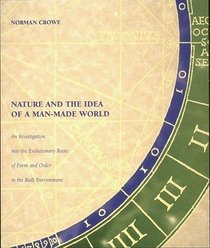Search -
Nature and the Idea of a Man-Made World : An Investigation into the Evolutionary Roots of Form and Order in the Built Environment
Nature and the Idea of a Man-Made World An Investigation into the Evolutionary Roots of Form and Order in the Built Environment
Author:
"Norman Crowe offers a plausible set of interpretations of the nature of the world that humankind has already built, as well as useful guidance on how we might build better in the future than we are doing now. In contrast with many conventional books that deal with the architecture of the past, he teaches us to see buildings not just as facade p... more »
Author:
"Norman Crowe offers a plausible set of interpretations of the nature of the world that humankind has already built, as well as useful guidance on how we might build better in the future than we are doing now. In contrast with many conventional books that deal with the architecture of the past, he teaches us to see buildings not just as facade p... more »
ISBN-13: 9780262032223
ISBN-10: 0262032228
Publication Date: 6/20/1995
Pages: 296
Rating: ?
ISBN-10: 0262032228
Publication Date: 6/20/1995
Pages: 296
Rating: ?
0 stars, based on 0 rating
Publisher: The MIT Press
Book Type: Hardcover
Other Versions: Paperback
Members Wishing: 0
Reviews: Amazon | Write a Review
Book Type: Hardcover
Other Versions: Paperback
Members Wishing: 0
Reviews: Amazon | Write a Review
Genres:
- Science & Math >> Nature & Ecology >> General
- Engineering & Transportation >> Architecture >> Criticism
- Engineering & Transportation >> Architecture >> General
- Engineering & Transportation >> Architecture >> Buildings >> Environmental




